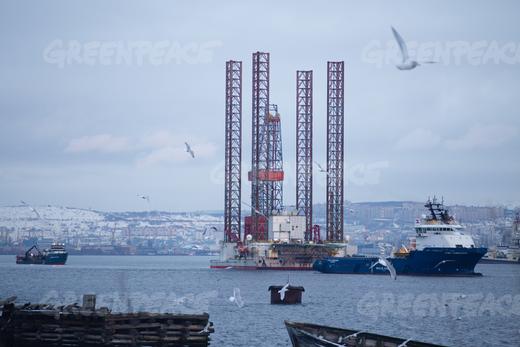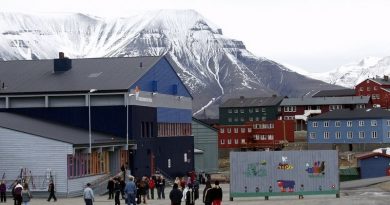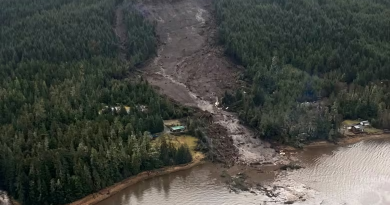Serious damage to drilling rig in Arctic Russia

The Gazprom Neft operated “Saturn” drilling rig lost one of its lifeboats and had its helipad destroyed by an Arctic storm last week, pictures of the rig show.
Greenpeace has now made available photos of the rig as it entered the Kola Bay on its way to port in Arctic Russian city of Murmansk. The pictures show that the helicopter pad has been damaged and that one of the lifeboats is gone.
As previously reported, the “Saturn” left the Dolginskoye field in the Pechora Sea on 6thNovember and was hit by a tough Arctic storm on the subsequent day. For several days, the rig had to seek shelter near the Kanin Peninsula.
“This is yet another example of how oil drilling in extreme Arctic waters can go terribly wrong because of extreme weather conditions”, Erlend Telles, Arctic campaign leader in Greenpeace Norway, says to BarentsObserver.
“The incident is the latest in the serious of accidents and near-accidents in the Arctic the last years”, he adds and mentions both the Kullik rig in Alaska and the tragic wreckage of the Kolskaya rig in 2011. In the latter accident as many as 67 people died.
Related stories from around the North:
Canada: Canada ponders exceptions to relief well rule for Arctic oil drilling, Alaska Dispatch
Norway: No Norwegian services to Russian Arctic offshore oil, Barents Observer
Russia: Disappointing result in Rosneft’s first Norwegian well, Barents Observer
United States: Lego cuts ties with Shell after Greenpeace campaign, Eye on the Arctic



